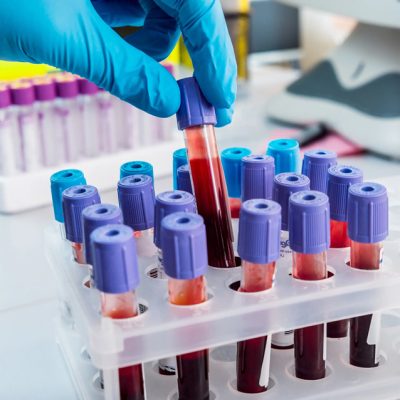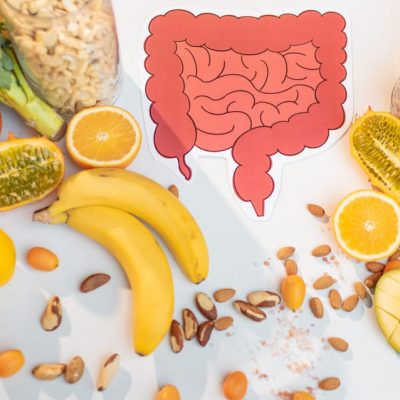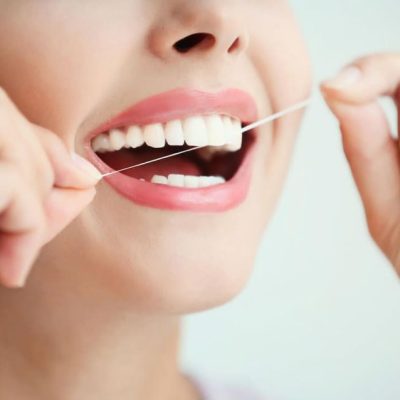Taking folic acid early in pregnancy was associated with better neuropsychological outcomes in the offspring at age 6 years, including improved verbal skills and behavior, new research suggests. The study, which included women with and without epilepsy, found no evidence of negative cognitive or behavioral outcomes, even with higher doses of folic acid. “The study … [Read more...]
New Guidelines on Fertility Preservation in Cancer Care Explained
The American Society of Clinical Oncology (ASCO) has released updated guidelines to guide fertility preservation for people with cancer, with the previous update published in 2018. The 2025 update reflects substantial growth in the evidence base, with 166 studies incorporated compared with just 61 studies in the 2018 guidelines. According to the authors, this expanded … [Read more...]
High Muscle Strength Linked to Lower Risk of Type 2 Diabetes
Researchers from the School of Public Health, LKS Faculty of Medicine of the University of Hong Kong (HKUMed) conducted a large-scale epidemiological study to explore the potential health benefits of high muscle strength in preventing type 2 diabetes (T2D) across varying levels of genetic risk. The study found that higher muscle strength was associated with over 40% lower risk … [Read more...]
New Strategy May Enable Cancer Monitoring From Blood Tests Alone
A new, error-corrected method for detecting cancer from blood samples is much more sensitive and accurate than prior methods and may be useful for monitoring disease status in patients following treatment, according to a study by Weill Cornell Medicine and New York Genome Center investigators. The method, based on whole-genome sequencing of DNA, also represents an important … [Read more...]
AI could Improve The Success of IVF Treatment
During IVF treatment, doctors use ultrasound scans to monitor the size of follicles - small sacs in the ovaries containing eggs - to decide when to give a hormone injection known as the ‘trigger’ to prepare the eggs for collection and ensure that they are ready to be fertilised with sperm to create embryos. The timing of the trigger is a key decision, as it works less … [Read more...]
Online Program Helps Women Improve Sexual Dysfunction
An online program called eSense appeared to be effective for the treatment of sexual interest/arousal disorder (SIAD) in women, according to new research. The program led to significant improvement in symptoms of sexual dysfunction, such as low sexual desire and sexual distress. These improvements were maintained for 6 months, the study authors wrote. “Low sexual desire … [Read more...]
Longevity and Exercise: Moderate Wins, More Isn’t Better
Researchers at the University of Jyväskylä in Jyväskylä, Finland, set out to answer this question and uncovered a surprising finding: Moderate physical activity had the most significant positive effect on longevity, reducing mortality by 7% over a 30-year period. Interestingly, higher levels of physical activity did not confer additional mortality benefits. The study was … [Read more...]
Healthy Eating in Midlife Linked to Overall Healthy Aging
Maintaining a healthy diet rich in plant-based foods, with low to moderate intake of healthy animal-based foods and lower intake of ultra-processed foods, was linked to a higher likelihood of healthy aging -- defined as reaching age 70 free of major chronic diseases and with cognitive, physical, and mental health maintained, according to a new study by researchers at Harvard … [Read more...]
Scientists Call for Targeted Fiber Diets to Boost Health
Dietary fibres in fruit, vegetables, beans and whole grains are some of the most important food components for human health. They help digestion, weight management, blood sugar control, heart health, cancer prevention and more. But RMIT University food scientist Professor Raj Eri said consumer advice on how best to use them for these various benefits is sorely … [Read more...]
Rethinking How we Study the Impact of Heat on Heart Health
When exposed to heat, the body may struggle to function normally, potentially resulting in serious cardiovascular issues. To cool down, the body increases blood flow to the skin, leading to higher heart rates and increased cardiac workloads. The resultant increase in strain on the heart can pose a significant risk for vulnerable groups, including older adults and individuals … [Read more...]
Citrus Remedy Squeezes Out Dry Mouth For Cancer Patients
A natural citrus oil from oranges, lemons, and limes is proving highly effective in relieving dry mouth, and when combined with a new lipid formulation, new research suggests it may be effective without significant side effects. Developed by the University of South Australia in collaboration with the Medical School at Stanford University, this world first formulation … [Read more...]
Children of Moms Who Smoked or Were Obese are More Likely to Become Obese Adults
Obesity is considered to be a global public health concern, but experts still disagree about the precise origins and causes of rising obesity rates. One topic under debate is whether a person's individual genetics and behaviors are more or less important than environmental factors, like socioeconomic status, in developing obesity. In the new study, researchers estimated … [Read more...]
Five Minutes a Day Eccentric Exercise can Improve Your Life
As little as five minutes a day of eccentric exercise could offer significant health benefits to those living a stagnant lifestyle, researchers from Edith Cowan University (ECU) found. The study, led by Dr Benjamin Kirk and Professor Ken Nosaka in ECU's School of Medical and Health Sciences, evaluated the effects of a five-minute a day, home-based bodyweight eccentric … [Read more...]
Researchers Debunk Common Belief That Women Get Better Muscles by Timing Their Workouts to Their Menstrual Cycles
New research from kinesiologists at McMaster University is challenging the internet belief that timing resistance training to specific phases of the menstrual cycle boosts the body's ability to build muscle and strength. The researchers have shown that exercising at various points in the cycle had no impact -- positive or negative -- on the synthesis of new muscle … [Read more...]
Depressing Findings for Those Suffering from Eating Disorders
New research shows that people with eating disorders are more harshly judged than those suffering from depression, making it much harder for them to seek treatment. That's the finding from a new University of South Australia study involving 235 people from the general population comparing attitudes towards binge eating, anorexia nervosa, bulimia nervosa, and … [Read more...]
Eat Better, Breathe Easier? Research Points to Link Between Diet, Lung Cancer
For cancers of organs like the liver, the long-term impact of our diet has been well studied -- so much so that we have guidance about red meat, wine and other delicacies. A new study from researchers at University of Florida Health looks at another kind of organ whose cancer risk may be affected by poor diet: the lungs. The study was funded by several National Institutes … [Read more...]
Mother’s High-Fat Diet Can Cause Liver Stress in Fetus
When mothers eat a diet high in fat and sugars, their unborn babies can develop liver stress that continues into early life. A new study published in the journal Liver International sheds light on changes to the fetus's bile acid, which affects how liver disease develops and progresses. Bile acids typically help with digestion and absorb dietary fats in the small … [Read more...]
AI Food Scanner Turns Phone Photos into Nutritional Analysis
Snap a photo of your meal, and artificial intelligence instantly tells you its calorie count, fat content, and nutritional value -- no more food diaries or guesswork. This futuristic scenario is now much closer to reality, thanks to an AI system developed by NYU Tandon School of Engineering researchers that promises a new tool for the millions of people who want to manage … [Read more...]
Antibiotics During Infancy Induce Microbiome Changes, Raise Risk for Childhood Asthma by 30 Percent
Antibiotics given during infancy produce changes in the microbiome that may raise the risk for childhood asthma by 30%, suggested two posters presented on February 28 at the American Academy of Allergy, Asthma, & Immunology (AAAAI)/World Allergy Organization 2025 Annual Meeting. Research suggests that respiratory infections during infancy raise the risk of developing … [Read more...]
Fish-Rich Diet May Slow Multiple Sclerosis Disability Progression
Higher consumption of oily fish such as tuna and salmon or lean fish like cod and perch is associated with a reduced risk for disability progression in patients with multiple sclerosis (MS), a new study confirmed. Investigators observed the positive associations across three different disability measures, suggesting that diets high in fish may offer benefits across different … [Read more...]
Innovative Program helps Seniors Manage Stress
A Canadian research team has released the results of a study on stress resilience in seniors. Their findings were published on January 5, 2025 in Frontiers in Psychology.The study involving 170 seniors with an average age of 76 found that O'stress, a six-week stress management program, had beneficial effects on the emotional health of participants. Those who followed the … [Read more...]
Exercise Improves Brain function, Possibly Reducing Dementia Risk
A study led by scientists at Rutgers University-New Brunswick has shown that specialized cells involved in how the body responds to insulin are activated in the brain after exercise, suggesting that physical activity may directly improve brain function. A study, published in Aging Cell, a journal focused on the biology of aging, indicates that therapies targeting this … [Read more...]
Freshwater Alga could be the Next Superfood that Feeds the World
A green alga that grows in lakes and rivers could be the next 'superfood' -- helping scientists to tackle global food security challenges while promoting environmental sustainability, a new study reveals. Chlorella Vulgaris is a freshwater microalga rich in protein, lipids, carbohydrates, vitamins, and minerals. Unlike conventional agriculture, which requires extensive … [Read more...]
Suboptimal dietary patterns may accelerate biological aging as early as young adulthood
Humans do not always age biologically at the same rate as their chronological age. Faster biological aging compared to chronological age has been linked to higher risks of disease and mortality. According to a recent study, a diet low in vegetables and fruits and high in red meat, fast food, and sugar-sweetened soft drinks was associated with accelerated biological aging even … [Read more...]
Beneficial Prenatal Vitamins to Reduce Risk of Infant Death
Dongqing Wang, an assistant professor of Global and Community Health at George Mason's College of Public Health, is pioneering research in prenatal nutritional interventions. His latest report identifies prenatal supplements that reduce health risks to small and vulnerable babies. This research was published in the The Lancet Global Health journal and funded by the Bill and … [Read more...]
A Common Mouth and Gut Bacteria may be Linked with Increased Stroke Risk
A common bacteria usually found in the mouth and gastrointestinal tract, Streptococcus anginosis, may be abundant in the guts of people with stroke and is associated with a worse prognosis and increased risk of death, according to a preliminary study to be presented at the American Stroke Association's International Stroke Conference 2025. The meeting is in Los Angeles, Feb. … [Read more...]
Regular Dental Flossing may Lower Risk of Stroke from Blood Clots, Irregular Heartbeats
Flossing your teeth at least once a week may be linked to a lower risk of stroke caused by a blood clot blocking brain blood flow and irregular heartbeats, according to a preliminary study to be presented at the American Stroke Association's International Stroke Conference 2025. The meeting is in Los Angeles, Feb. 5-7, 2025, and is a world premier meeting for researchers and … [Read more...]
Your Stroke Risk might be Higher if your Parents Divorced During your Childhood
People whose parents divorced during their childhood may be at a greater risk of stroke later in life, according to a new study published January 22, 2025 in the open-access journal PLOS One by Esme Fuller-Thomson of University of Toronto, Canada, and colleagues. Each year, approximately 795,000 individuals in the U.S. have a stroke. Previous work has established many … [Read more...]
A Light-Activated Drug to Fight Psoriasis
Psoriasis is a chronic skin disease that manifests itself mainly with skin symptoms (dryness, itching, scaly skin, abnormal patches and plaques). It affects about 2% of the population and is mediated by an altered immune system response that triggers the proliferation of skin cells. Depending on the severity, there are different therapeutic options (topical medications, … [Read more...]
Could the Contraceptive Pill Reduce Risk of Ovarian Cancer?
It's a little pill with big responsibilities. But despite its primary role to prevent pregnancy, the contraceptive pill (or 'the Pill') could also help reduce the risk of ovarian cancer, according to new research from the University of South Australia. Screening for risk factors of ovarian cancer using artificial intelligence, UniSA researchers found that the oral … [Read more...]
- 1
- 2
- 3
- …
- 422
- Next Page »





























